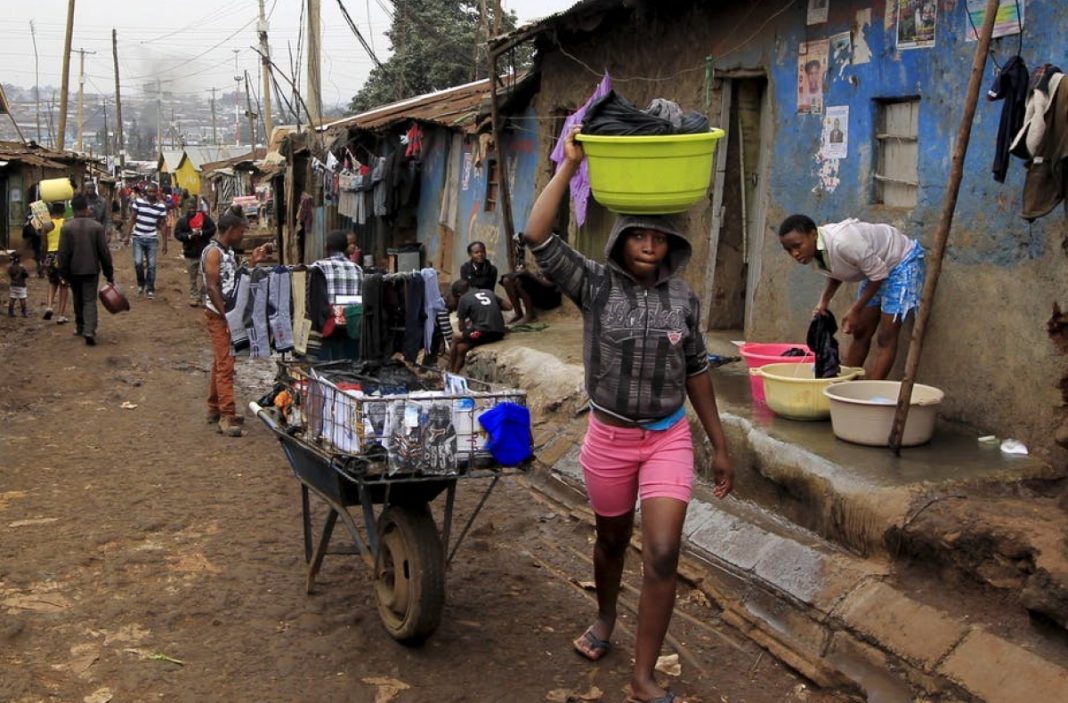The ActionAid Nigeria and Centre for Social Justice have cautioned the Federal Government against the proposed allocation of N500 billion for distribution to the poor households across the country, warning that the proposed initiative contains policy loopholes that may end up exarcerbating poverty and hardship.
In a joint press release made available to Daily Review, the groups raised concern that the money may not reach the poor considering the fact that millions of those who are in dire need of the palliative are not connected to the country’s banking system.
“We have identified several concerns with the Federal Government’s plan and it remains unclear how the money will be digitally transferred to the targeted households, considering that millions of extremely poor individuals in Nigeria do not possess bank accounts, mobile wallets, or easy access to banking services. While the proposed disbursement of N8,000 per month for six months may provide temporary relief, it is unlikely to sufficiently address the long-term effects of inflation on the impoverished population. This raises serious questions about how the Federal Government intends to reach these individuals who lack the necessary means to receive digital transfers. The exclusion of this vulnerable population undermines the credibility and effectiveness of the proposed cash transfer plan,” the statement said.
The groups also raised concern about the transparency of the exercise, warning millions of the extremely poor households may be left out, paving the way for the funds to be tempered with.
“It is also imperative for the Federal Government to consider the larger socio-economic context in which this cash transfer plan is being implemented. The removal of fuel subsidies, as announced by the President, has contributed to high inflation rates across the country. While the proposed monthly disbursement of N8,000 may provide some temporary relief, it is unlikely to significantly cushion the impact of inflation on the livelihoods of the poor. We must consider the long-term effects and sustainable solutions needed to address the root causes of poverty,” the statement added.
In light of these concerns the groups offer the following recommendations to the Federal Government, urging it to do whatever it takes to alleviate poverty in the country:
- Engage organised labor, the private sector, professionals, women, and the public in good faith disclosure and negotiations with relevant information to design social intervention programs that cushion the hardship in critical sectors such as transport, agriculture/food, and health. The cushioning measures should be comprehensive and reinforce each other.
- Cash transfers to the poorest of the poor on the National Social Register provided the funds are not from borrowed money but from savings. But the transfers must be built around increased transparency and accountability, access to information and monitoring by all interested parties including media and civil society. The NSR must be continually updated to take out deceased persons, previously poor but who have now left that category and include new persons who have recently fallen into the category.
- Consider the introduction and local production of compressed natural gas-powered buses and vehicles for mass transit to reduce transportation costs for the poor. Such buses must be produced or assembled in Nigeria to create jobs and increase corporate income tax accruing to government.
- Review the minimum wage to ensure it adequately meets the needs of workers, setting it at a level not less than N100,000 per month.
- Increase resources allocated to social health insurance, ensuring that all individuals on the National Social Register have access to healthcare without the burden of premiums.
- Accelerate the revitalization of existing refineries and support the production efforts of private sector refineries to avoid monopolies in the oil refining sector. Importation of refined products takes 25-30% of extant foreign exchange demands.
- Expedite the reconciliation of accruals to the Federation Account from NNPC Limited through the establishment of a high-level committee or the optimization of existing committees.
- Guarantee security across Nigeria especially in food belts to enable Nigerians go back to the farm to produce food and increase agriculture’s contribution to GDP.
It could be recalled Daily Review reported that President Bola Ahmad Tinubu had on 13th July, 2023 announced a plan to cushion the effect of soaring food prices across the country in the aftermath of fuel subsidy removal by allocating N500 billion to over 12 million households for six months. However, some experts cast doubt over the plan, fearing corruption and lack of transparency.



